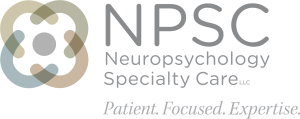
Brain Food Friday 10.5.18
At NPSC we know that one of the best ways to keep your brain healthy is to learn new things. Unfortunately, with all of the information available to us, it can feel almost impossible to find the time to sift through the web to find the gems.
So, we’ve decided to do it for you! Every Friday, you can find five new articles or videos from the week that will stretch your mind, fuel your spirit, and feed your brain.
“After 5 Years On The Lam, Lady Reunites With Amazed Owners” by Amy Held, npr.org
Enjoy this feel-good story of a dog reuniting with her family.
“10 Words With Spooky Etymologies” by Paul Anthony Jones, mentalfloss.com
“Ghosts, ghouls and monsters turn up everywhere at Halloween—including in our language. From treacherous underground goblins to ghostly roaming primates, here are the spooky origins of 10 familiar words.”
“The Secret to Aging Well? Contentment” by Robert W. Goldfarb, nytimes.com
“Despite having many friends in their 70s, 80s and 90s, I’ve been far too slow to realize that how we respond to aging is a choice made in the mind, not in the gym.”
“Six things parents can do to raise kids to be confident decision-makers” by Kate Rope, washingtonpost.com
“Here are some ways parents can help their kids become confident and independent decision-makers who know themselves.”
“How the Remnants of Human Poop Could Help Archaeologists Study Ancient Populations” by Lorraine Boissoneault, smithsonianmag.com
“Undigested molecules persist in soil for hundreds or even thousands of years, acting as biomarkers that show the ebbs and flows of bygone civilizations.”

Brain Food Friday 9.28.18
At NPSC we know that one of the best ways to keep your brain healthy is to learn new things. Unfortunately, with all of the information available to us, it can feel almost impossible to find the time to sift through the web to find the gems.
So, we’ve decided to do it for you! Every Friday, you can find five new articles or videos from the week that will stretch your mind, fuel your spirit, and feed your brain.
“The Origins of 25 Monsters, Ghosts, and Spooky Things” by Sonya Vatomsky, mentalfoss.com
“Though dressing up as an angel is acceptable, it’s ghouls and goblins that truly capture our imaginations during the Halloween season.”
“23 Literary Movies and TV Shows You Should Be Watching This Fall” by Emily Temple, lithub.com
Maybe challenge yourself to read the books first?
“’OK,’ ‘Sheeple’ Says Scrabble, Which Added 300 New Words to Official Dictionary” by Katherine J. Wu, smithsonianmag.com
“’For a living language, the only constant is change,’ says Peter Sokolowski, editor at large for Merriam-Webster.”
“3 steps to money mastery: Would you rather have freedom or stuff?” by Vicki Robin, bigthink.com
“If you want to free yourself from the consumer culture and economic constraints, you have to achieve financial independence, says author Vicki Robin.”
“The Couple Who Helped Decode Dyslexia” by Katie Hafner, nytimes.com
“Sally and Bennett Shaywitz, co-directors of the Yale Center for Dyslexia and Creativity, have been conducting a study of people with dyslexia since 1983.”

Brain Food Friday 9.21.18
At NPSC we know that one of the best ways to keep your brain healthy is to learn new things. Unfortunately, with all of the information available to us, it can feel almost impossible to find the time to sift through the web to find the gems.
So, we’ve decided to do it for you! Every Friday, you can find five new articles or videos from the week that will stretch your mind, fuel your spirit, and feed your brain.
“Why We Choke Under Pressure—And How To Avoid It” by Sian Leah Beilock, ted.com
“When the pressure is on, why do we sometimes fail to live up to our potential? Cognitive scientist and Barnard College president Sian Leah Beilock reveals what happens in your brain and body when you choke in stressful situations, sharing psychological tools that can help you perform at your best when it matters most.”
“The Afterlife of Beetlejuice” by Holly Millea, smithsonianmag.com
“The ‘Ghost with the Most’ has been haunting movie watches—and one small Vermont town—for 30 years.”
“11 Science-Backed Tips for Winning an Argument” by Starre Vartan, mentalfloss.com
“For many people, arguing is something to avoid. But arguments can be used for good—they can inform, sharpen thinking, and challenge old ideas in important ways.”
“Passions aren’t fixed. You can develop them.” by Mike Colagrossi, bigthink.com
“A Stanford new study delves into whether passions are fixed or developed.”
“Drinking Gold Was a Grisly Anti-Aging Trend of 16th-Century France” by Paula Mejia, atlasobscura.com
“The tony elixir killed elites looking for youthful complexions.”

Recent Comments